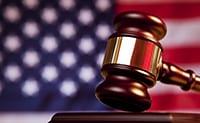The Supreme Court today in twin decisions lowered the standard for awarding attorney fees in patent cases. The rulings coincide with intensified efforts in Congress to rein in the excesses of so-called “patent trolls,” including by loosening restrictions on attorney fees awards.

In Octane Fitness v. ICON Health & Fitness, the Court unanimously* ruled that the term “exceptional” in 35 U.S.C. § 285, which empowers the district court to award attorney fees “in exceptional cases,” refers to a claim that “stands out” from others or to litigation conduct that is “unreasonable.” An exceptional case can be proven merely by a preponderance of the evidence. The Court noted that the statute vested discretion in the district courts from its inception—discretion that the Federal Circuit had consistently applied until 2005, when the court “abandoned that holistic, equitable approach in favor of a more rigid and mechanical formulation.” Under Brooks Furniture v. Dutailier, the Federal Circuit held that attorney fees could be awarded only for “material inappropriate conduct” or litigation both “brought in subjective bad faith” and “objectively baseless,” and in both cases under a clear-and-convincing standard. In Octane Fitness, the district court denied the accused infringer’s motion for attorney fees, finding that ICON’s claim was neither objectively baseless nor brought in subjective bad faith, and the Federal Circuit affirmed. The Supreme Court reversed, finding instead that the “ordinary” meaning of an “exceptional case” is “simply one that stands out from others with respect to the substantive strength of a party’s litigating position (considering both the governing law and the facts of the case) or theunreasonable manner in which the case was litigated.” The Court also found theBrooks Furniture standard “so demanding that it would appear to render § 285 largely superfluous” and instead emphasized the importance of respecting the district court’s discretion. Finally, the Court struck down the requirement that attorney fees be proven by clear and convincing evidence; instead, apreponderance of the evidence will suffice.
In Highmark v. Allcare Health Management System, the Court again unanimously ruled that the Federal Circuit should henceforth review Section 285 decisions for abuse of discretion. The district court there found the patentee had engaged in “vexatious,” “deceitful,” and “frivolous” conduct and awarded nearly $5 million in attorney fees. The Federal Circuit, however, mostly reversed the award, applyingde novo review of the “objectively baseless” standard for attorney fees set forth in Brooks Furniture. The Supreme Court vacated the Federal Circuit’s ruling and instead held that attorney fees determinations are subject to abuse-of-discretion review. The Court observed that “the text of the [attorney fees] statute emphasizes the fact that the determination is for the district court, which suggests some deference to the district court upon appeal” (internal quotations omitted).
The rulings issued just as the U.S. Senate is considering legislation targeting non-practicing entities and their litigation practices. Last year, the House passed a sweeping bill that would change many aspects of patent litigation, including by presumptively awarding attorney fees to the prevailing party. The fees provision in particular has sparked significant controversy among patent holders and has been the subject of intense negotiations in the Senate. It is unclear how exactly theOctane Fitness and Highmark rulings will affect the congressional debate, but it seems plausible that, because they lowered the standard for awarding attorney fees, they may blunt the need for legislative reform with respect to fees.
* Justice Scalia joined the opinion except as to three footnotes.
